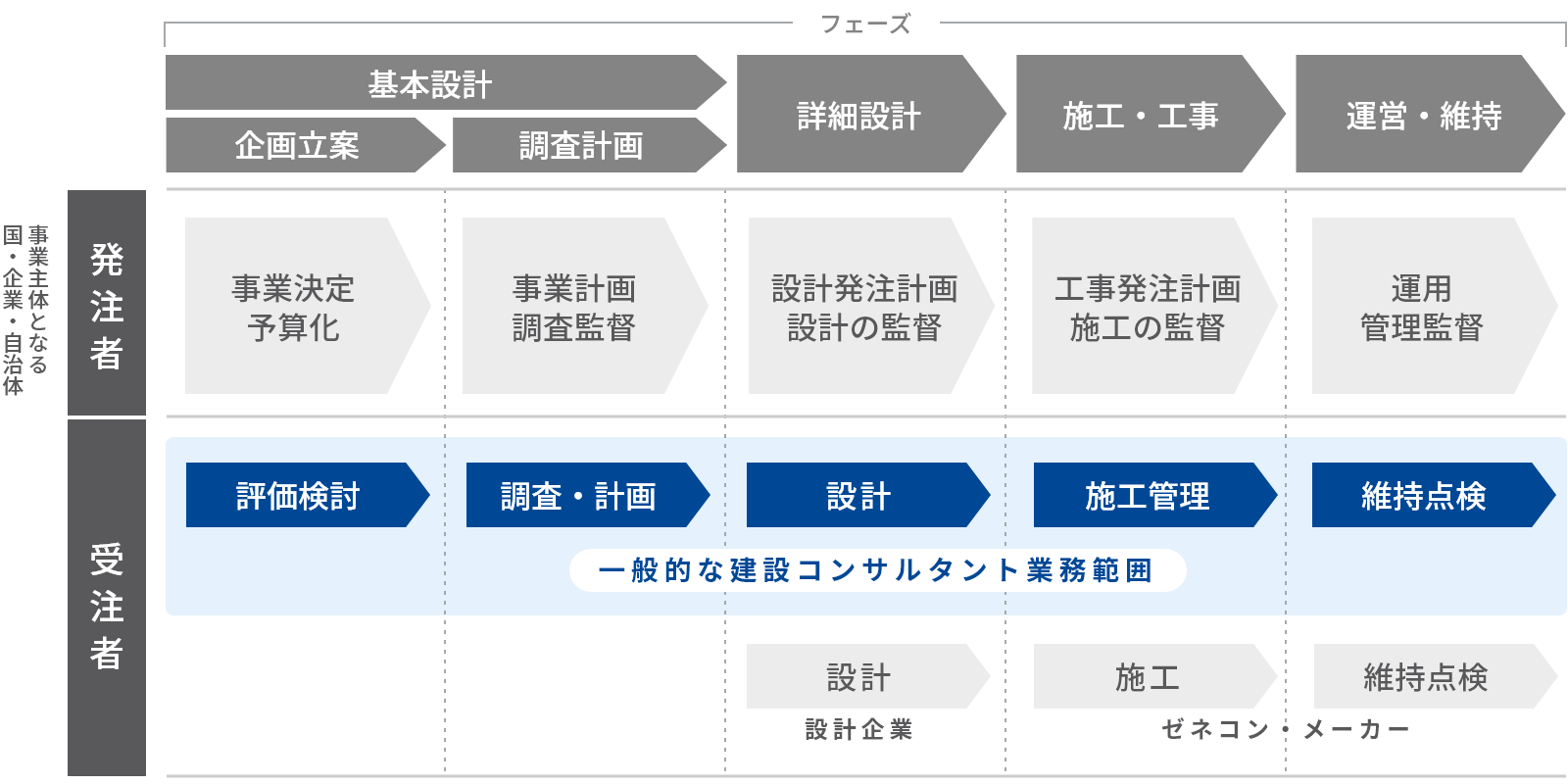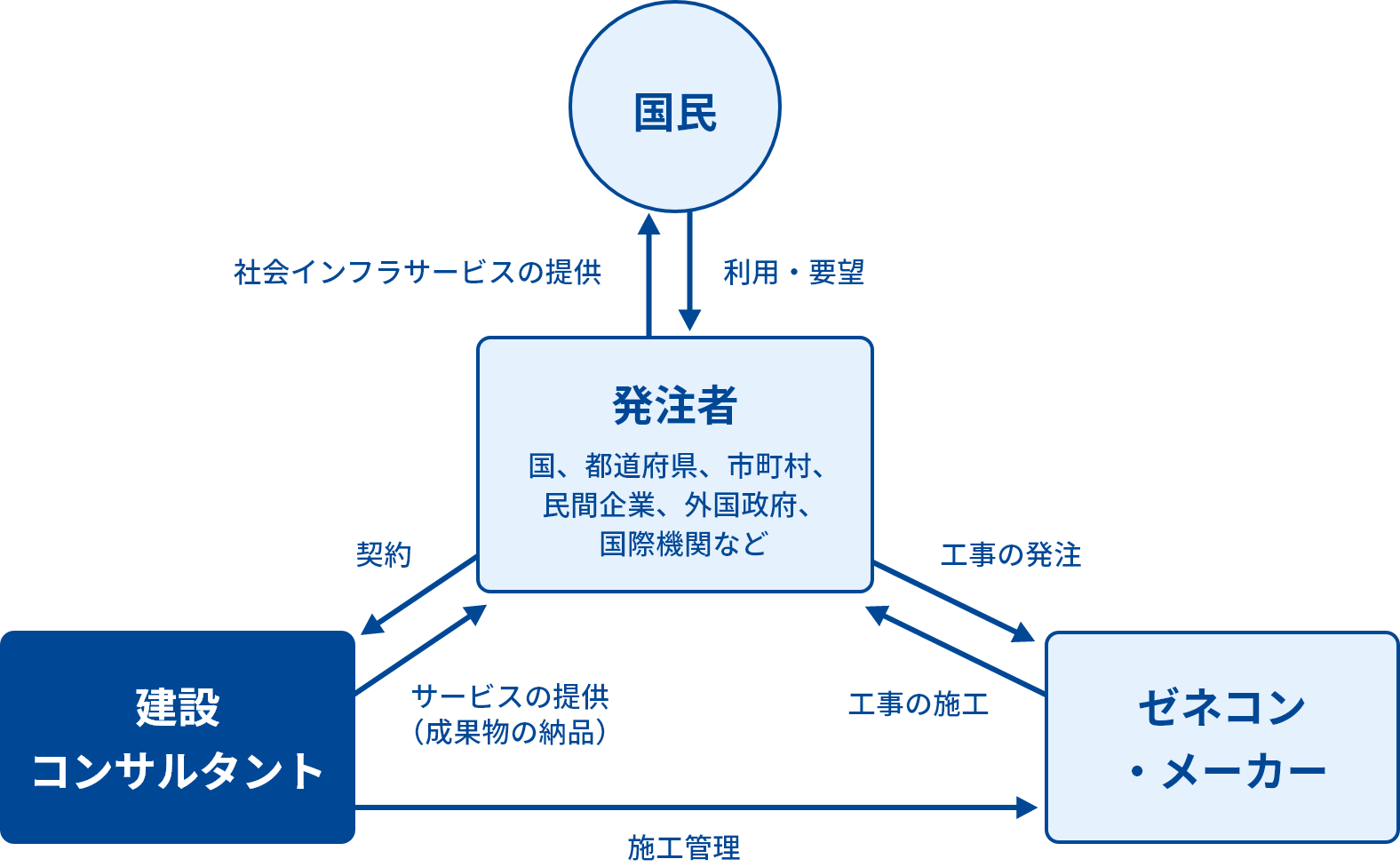What is a Construction Consultant?
A construction consultant is a "producer who creates the future"
A construction consultant is generally a professional who provides specialized knowledge and experience in the entire process of planning, designing, managing and completing a construction project.
Their role covers a wide range of areas throughout the entire construction project, including planning, proposing construction methods, cost and quality control, and risk assessment.
Our company has not been limited to "construction projects"; we have expanded our business to be "future producers" that propose optimal solutions for local issues and ideal future visions for social infrastructure services, taking into account laws and regulations, as well as safety, convenience, and environmental considerations.
What are social infrastructure services?
Social infrastructure services are essential to the foundation of our daily lives.
When you turn a tap, water comes out, and when you flip a switch, the lights come on. There are roads and parks, cars and buses run on the streets, and train stations. Tunnels run through mountains, bridges cross rivers, and airports and ports connect to other countries. Garbage is collected regularly, renewable energy is used, measures are taken to prevent traffic congestion, and measures are taken to deal with frequent natural disasters. All of these are social infrastructure services.
We are able to live comfortable lives every day because the environment surrounding our lives is well-maintained.
This is where the work of construction consultants has been extremely helpful.
Industry and job description
The occupation of construction consultant is classified as "academic research, professional and technical services industry" in the Japan Standard Industrial Classification, and the Ministry of Land, Infrastructure, Transport and Tourism classifies construction consultants as a "construction-related industry."
Generally, there are three main types of work performed by construction consultants:
The first is the planning stage, including feasibility studies (FS) and preliminary design, which includes fundraising, budgeting, and development planning at the early stages of the project.
The second is detailed design and supervision at the design stage, which is when the construction project is actually created.
The third is to develop long-term plans and propose improvements for operation, maintenance, and management after completion.
The position of construction consultant
Construction consultants act as partners to clients (national governments, companies, local governments, etc.) who provide social infrastructure services that are used and desired by the public, proposing solutions through research and investigation, carrying out designs, and providing various types of consulting. They may also supervise the construction of general contractors and manufacturers who carry out the work, and provide support for maintenance, management, and operation afterwards.




